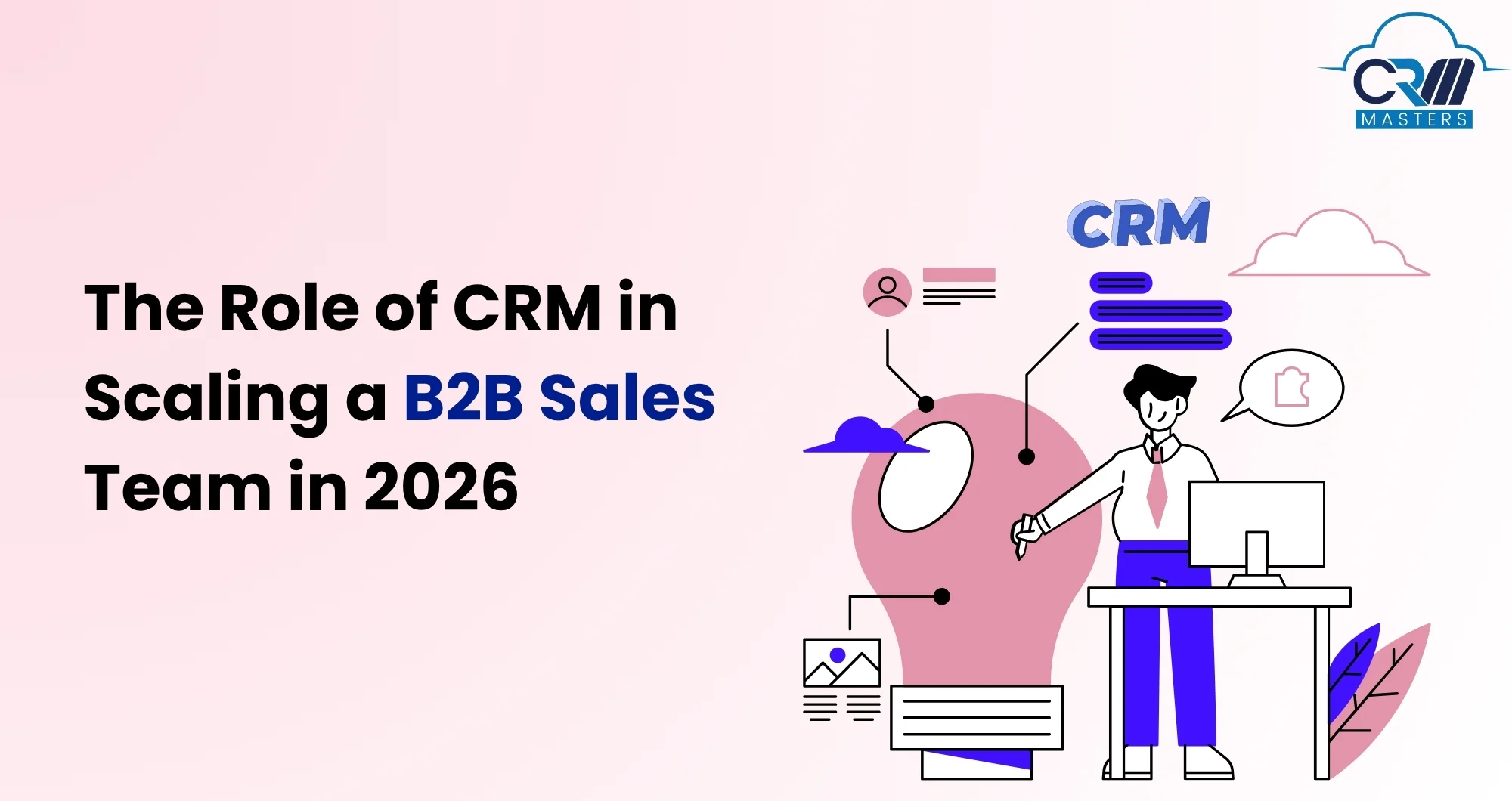
How CRM Fuels Business Growth with Smarter Strategies
Every successful business today has one thing in common, a deep understanding of its customers. But in an era where interactions happen across multiple channels and data pours in from every direction, keeping track of customers, their preferences, and their journey isn’t easy. That’s where CRM for Business Growth steps in, not just as a tool, but as a strategy that connects sales, marketing, and service to a single unified goal. CRM ensures that every conversation, opportunity, and customer experience contributes directly to your growth.
What is CRM and How It Drives Business Growth

At its core, CRM (Customer Relationship Management) is a system that enables businesses to manage their relationships with both current and potential customers. But nowadays, CRM goes far beyond contact management. In simple terms, CRM gives you a 360-degree view of your customer, helping you build meaningful connections that ultimately lead to consistent revenue growth.
It enables companies to:
- Track every interaction across sales, marketing, and service.
- Automate repetitive processes, saving valuable time.
- Use data insights to make smarter business decisions.
- Personalize communication, leading to stronger customer loyalty.
How to Use CRM as a Strategic Growth Tool

Data is one of the most powerful assets in any organization, but only when used correctly. Businesses collect customer data from emails, calls, social media, and websites, yet without a proper system, this information remains scattered and underutilized.
CRM bridges this gap by centralizing customer data and turning it into actionable insights.
For instance, your CRM can show which marketing campaign brought in the highest-value leads or which sales rep closed the most deals. By analyzing these patterns, businesses can refine their strategies, allocate budgets effectively, and replicate success across departments.
This data-driven decision-making not only improves sales performance but also helps predict future opportunities, creating a clear pathway to sustainable business growth.
Top Ways CRM Helps in Sales Growth
1. CRM For Sales
One of the biggest advantages of CRM is its impact on sales acceleration. And the results come in the form of higher conversion rates, improved customer retention, and faster revenue growth.
-
Smarter Lead Management
With CRM, every lead is automatically captured, tracked, and categorized based on its potential value. This ensures that your sales team never loses track of prospects and can focus on the most promising opportunities.
-
Streamlined Pipeline Tracking
CRM tools visualize the entire sales pipeline, showing which deals are in progress, which need follow-ups, and which are close to closing. This transparency enables better forecasting and helps teams hit targets consistently.
-
Personalized Follow-Ups
No two customers are the same. CRM enables businesses to send personalized emails, reminders, and offers based on each customer’s interests or purchase history. This level of personalization turns one-time buyers into loyal customers.
2. CRM and Marketing Alignment
For businesses to grow sustainably, sales and marketing must work hand in hand, and CRM is the bridge that connects them. This seamless coordination between marketing and sales fuels predictable, scalable growth.
-
Unified Customer View
CRM platforms integrate with marketing tools to track how leads move from awareness to purchase. This unified view helps both teams understand what works and what doesn’t.
-
Targeted Campaigns
CRM helps segment customers based on behavior, demographics, or purchase history. Marketers can then design campaigns that speak directly to each audience segment, increasing engagement and reducing wasted ad spend.
-
Automation That Saves Time
From sending welcome emails to scoring leads automatically, CRM automation ensures that every interaction is timely and relevant. The more consistent the communication, the stronger the brand-customer relationship becomes.
3. Customer Retention
Acquiring a new customer is important, but retaining one is even more valuable. Studies show that existing customers spend up to 67% more than new ones.
CRM plays a critical role here by helping businesses understand customer behavior and proactively manage relationships. By creating consistent and positive experiences, businesses can build loyalty that drives repeat sales and long-term profitability.
Here’s how:
- Proactive Support: CRM systems alert teams to follow up before an issue escalates.
- Personalized Offers: Based on previous purchases, businesses can suggest upgrades or add-ons.
- Feedback Tracking: CRM stores customer feedback and helps businesses act on it, improving overall satisfaction.
4. CRM for Cross-Department
Growth doesn’t happen in silos. CRM ensures that every department, from marketing to sales to customer support, is on the same page.
For example, when a sales rep logs an issue in CRM, the support team can immediately view the same record and resolve it quickly. This interdepartmental visibility leads to better teamwork, faster responses, and improved customer satisfaction, all crucial for business growth.
With shared access to real-time data, employees can:
- Access customer information instantly.
- Avoid duplicate communication.
- Handle requests faster and more accurately.
Key Features That Make CRM a Growth Catalyst
A modern CRM solution offers several features designed specifically to help businesses scale efficiently. Each of these features plays a direct role in increasing efficiency, reducing costs, and supporting sustainable growth.
Here are some must-have features that directly impact business growth:
- Lead & Contact Management: Keep every detail of customers and prospects organized in one place.
- Sales Forecasting: Predict revenue and track performance trends to plan ahead.
- Automation Workflows: Eliminate manual tasks so your teams can focus on strategy.
- Reports & Analytics: Get insights on what’s driving sales and where to improve.
- Integration Capabilities: Connect CRM with tools like accounting software, email marketing platforms, or ERP Solutions for seamless workflows.
- Mobile CRM: Access customer data anytime, anywhere, ensuring productivity on the go.
Implementing CRM the Right Way: A Step-by-Step Approach

CRM implementation is not just about installing software, it’s about adopting a growth-focused strategy.
Step 1: Define Your Business Goals
Be clear on what you want your CRM to achieve, improved lead tracking, better customer retention, or higher sales efficiency.
Step 2: Choose the Right CRM Solution
Pick a CRM that fits your business model and integrates with your existing tools. For example, Zoho CRM offers flexible customization and integration options for growing businesses. Contact with Zoho Partner to understand how Zoho works for your business.
Step 3: Ensure Team Training
CRM adoption fails when teams don’t know how to use it effectively. Conduct regular training and make CRM usage a part of your daily workflow.
Step 4: Start Small, Then Scale
Begin with essential features like contact management and lead tracking, and expand as your needs grow.
Step 5: Monitor and Improve
Use analytics and feedback to measure success and continuously optimize your CRM strategy.
When done right, CRM becomes a long-term growth partner rather than just a software investment.
Growing with the Right CRM Strategy
Nowadays, growth is no longer about who sells more; it’s about who connects better. A well-implemented CRM system helps businesses understand their customers deeply, align their teams, and make smarter decisions, all while saving time and resources.
As your business consultant, CRM Masters improves lead conversions and strengthens customer relationships, ensuring modern business success.
Whether you’re a small business looking to scale or a large enterprise aiming to streamline complex operations, the right CRM strategy can help you achieve measurable, meaningful growth.
So, if your business isn’t powered by CRM yet, it’s time to consult CRM Masters. Book your free call with us now!
FAQ
Q1. How does CRM help in business growth?
Ans. CRM helps businesses grow by improving lead management, automating sales processes, personalizing communication, and providing real-time insights for better decision-making. It builds stronger relationships that lead to higher conversions and long-term customer loyalty.
Q2. What are the key features a business should look for in a CRM?
Ans. Essential features include lead tracking, sales pipeline management, analytics, workflow automation, integration options, and mobile access. These features enhance efficiency and scalability.
Q3. Can CRM Masters help customize CRM according to my business needs?
Ans. Absolutely. CRM Masters specializes in custom CRM development for Zoho and Salesforce platforms. We tailor modules, workflows, and automation to fit your business structure perfectly.
Q4. How does CRM improve customer retention?
Ans. CRM keeps track of every customer interaction, enabling businesses to respond faster, offer personalized experiences, and anticipate needs, all of which improve retention and satisfaction.












